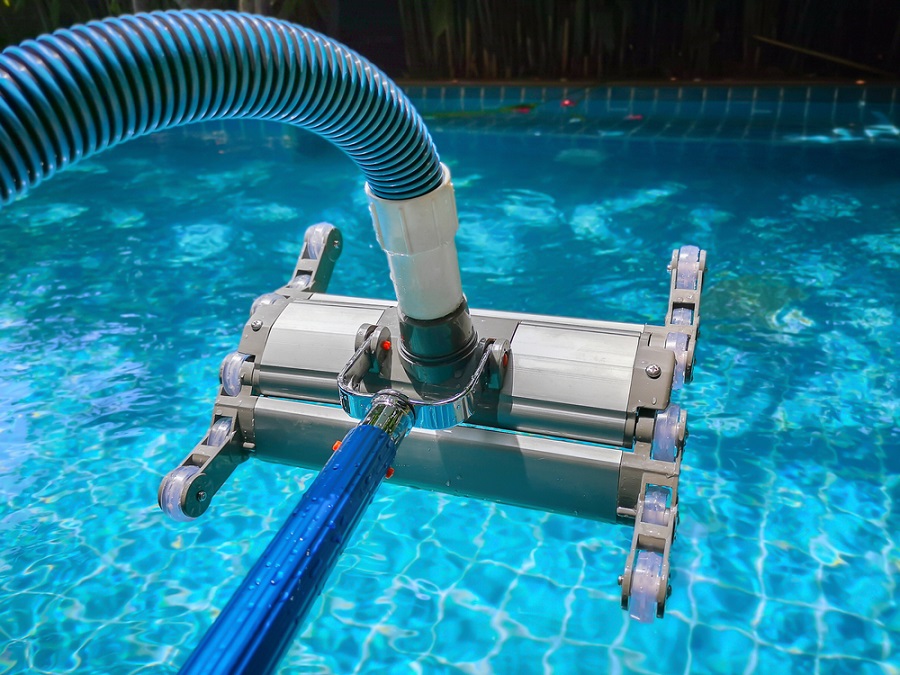A swimming pool is an investment. Therefore, you should consider the cost of maintaining a pool before purchasing one.
Several factors go into determining the price of a pool. The size of the pool, the type of material used, the location of the pool, the amount of maintenance required, and the number of years the pool has been in service are among the most important considerations.
Size
Pools come in various sizes. Smaller pools tend to be cheaper than larger ones. However, smaller pools may not provide sufficient space for entertaining guests.
Material
Most pools are made of concrete. Concrete is durable, but it requires regular maintenance. If you plan to install a pool, you should choose a material that resists damage from chemicals and sunlight.
Location
Where you place your pool affects its value. Pools near a house are generally more expensive than those placed away from houses.
Maintenance
Maintaining a pool is costly. Regular cleaning and chemical treatments are necessary to prevent algae growth and maintain water quality.
Years in Service
Pool owners often sell their pools after 10 years. This is because the initial costs of installing a pool are higher than the ongoing costs of maintaining it.
Costs vary depending on the size of the pool and the materials used. Some pools require little maintenance, while others need constant attention.
Before buying a pool, you must determine whether you want a large or small pool. Large pools are usually more expensive than small ones.
The size of your yard will also affect the size of the pool you buy. If you live in a rural area, you may find it difficult to locate a suitable pool.
When shopping for a pool, you should ask about the warranty offered by the manufacturer. Most warranties cover repairs for up to five years.
After considering these factors, you should be able to determine the approximate cost of owning a pool.
1. Cost to Own a Swimming Pool
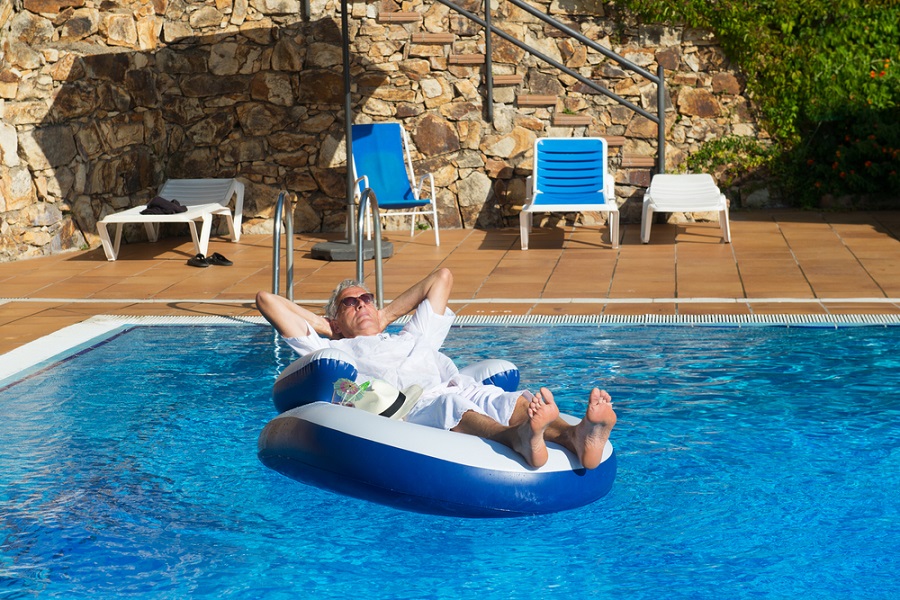
Swimming pools can be purchased for between $10,000 and $50,000. The average cost of a pool is around $20,000.
The cost of a pool depends on many factors. These include the size of the pool, where it is located, and the type of material used.
The size of the pool determines the initial cost of installation. For example, a 25-foot pool costs approximately $10,000 to build.
The location of the pool also influences the total cost of ownership. For example, a pool next to a home is more expensive than one located far away.
The type of material used in the pool’s construction also affects the overall cost. For example, concrete pools are typically more expensive than fiberglass pools.
The cost of maintaining a pool varies depending on the type of pool. For example, fiberglass pools require less maintenance than concrete pools.
In addition, the age of the pool influences the total cost of owning a pool over time. Older pools cost more to repair than newer ones.
2. Maintenance Cost
Regular maintenance is essential to keeping a pool clean and safe. Without proper care, a pool could become unsightly and pose health risks.
You should budget money for routine maintenance every year. This includes cleaning the pool, treating the water, and replacing filters.
Some pools require additional maintenance. For example, some pools need to be drained and cleaned annually.
Other types of maintenance include repairing leaks, fixing cracked tiles, and removing weeds.
3. Average Pool Service Cost
A typical swimming pool service bill ranges from $100 to $300 per month. However, this amount varies based on the size of the facility and the number of people using it.
4. Yearly Pool Upkeep Costs
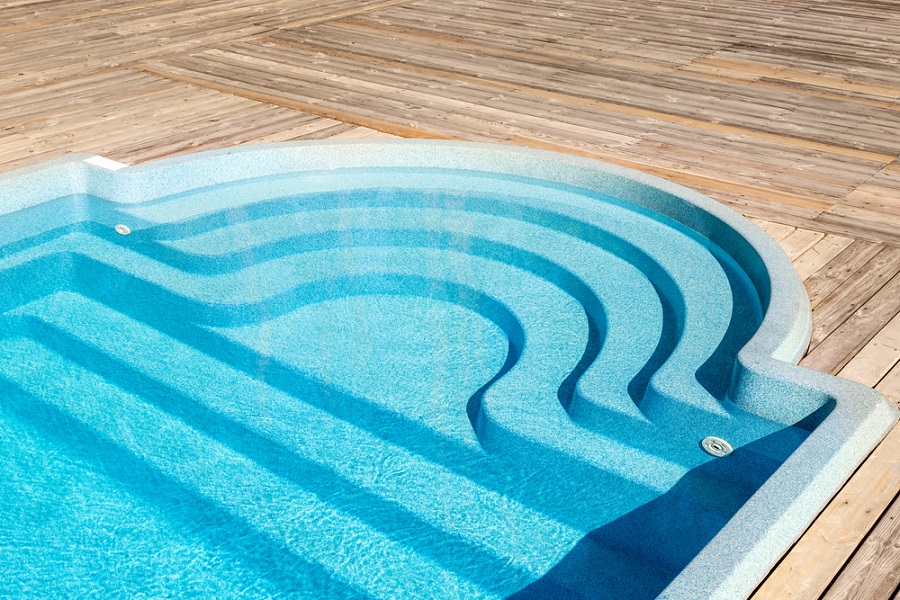
Pool upkeep costs vary depending on the size and type of pool. Smaller pools generally have lower annual costs than larger ones.
Fiberglass pools cost less to maintain than concrete pools. They also require less frequent maintenance.
Concrete pools need to be drained at least once a week. Regular cleaning and scrubbing are required as well.
5. Annual Pool Maintenance Cost
An average yearly pool maintenance cost is around $200. This figure does not include any extra charges incurred during significant renovations.
6. Renovations And Repairs
Renovating a pool requires planning. You should plan to spend several months before starting work.
When renovating a pool, you will need to remove old equipment and replace it with new items.
If your existing pool needs extensive renovation, you might consider buying a new pool instead.
7. Monthly Pool Maintenance Cost
Monthly pool maintenance costs range from $30 to $60. This includes regular cleaning, heating, and filtering.
8. Pool Repair Costs
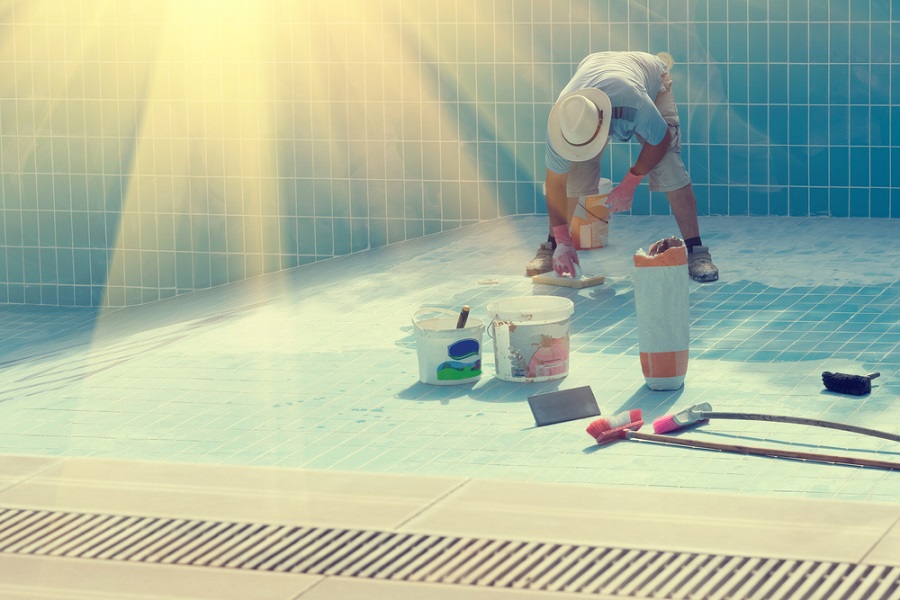
Repairing a pool usually involves replacing damaged parts or installing them correctly.
Depending on the extent of damage, repairs can cost anywhere from $50 to $500.
9. Weekly Pool Service Cost
Weekly pool service costs between $15 and $25. This includes cleaning the filter, draining the pool, and checking the pH level.
10. Pool Cleaning Cost
Cleaning a pool typically costs between $20 and $40. This includes removing debris, rinsing off the walls, and vacuuming the floor.
11. Pool Heater Cost
Heaters are an essential part of a pool’s operation. Most heaters use electricity to create steam.
12. Pool Filter Replacement Cost
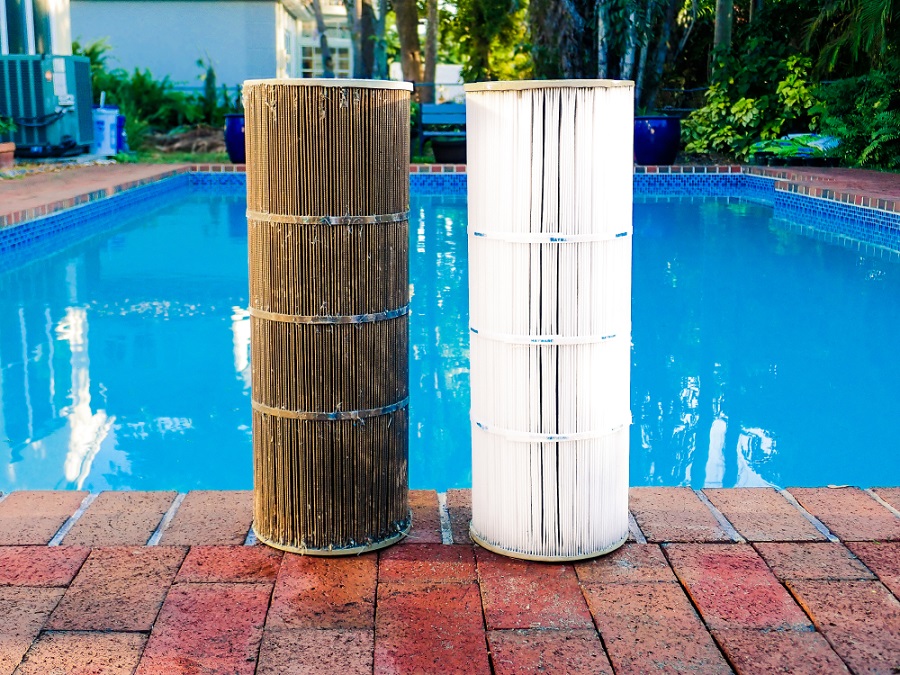
Filters must be replaced regularly to keep the pool clean. Some filters last up to 10 years, while others only last 2-3 years.
13. Pool Chemical Cost
Chemicals help make the pool water safe. Depending on how often you use chemicals, they can cost anywhere from $30 to $150 each time you add them.
14. Pool Water Testing Cost
Testing the water helps ensure that it meets safety standards. This test is especially important if you live near a lake or other body of water.
15. Pool Drainage Cost
Drainage systems prevent water from building up inside the pool. The most common drainage system is a sump pump.
16. Pool Pump Installation Cost
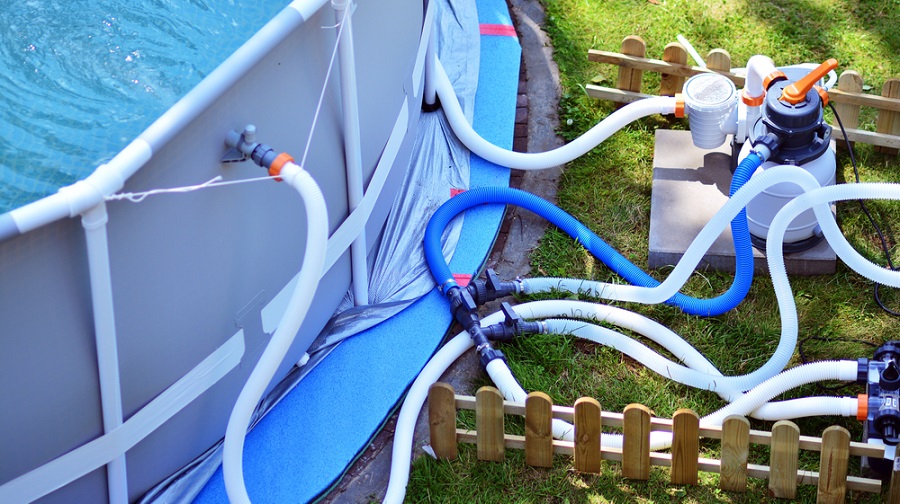
Pumps move water through the filtration system. Pumps come in two different sizes: submersible pumps and above-ground pumps.
17. Pool Filtration System Cost
The filtration system removes dirt particles from the water. Depending on the size of your pool, you may choose to install a mechanical or chemical filtration system.
18. Pool Light Cost
A pool light keeps swimmers safe by illuminating dark areas. Most lights cost about $80-$100.
19. Pool Cover Cost
A cover protects the pool from rain and snow. It also prevents leaves and other debris from falling into the pool.
20. Pool Skimmer Cost
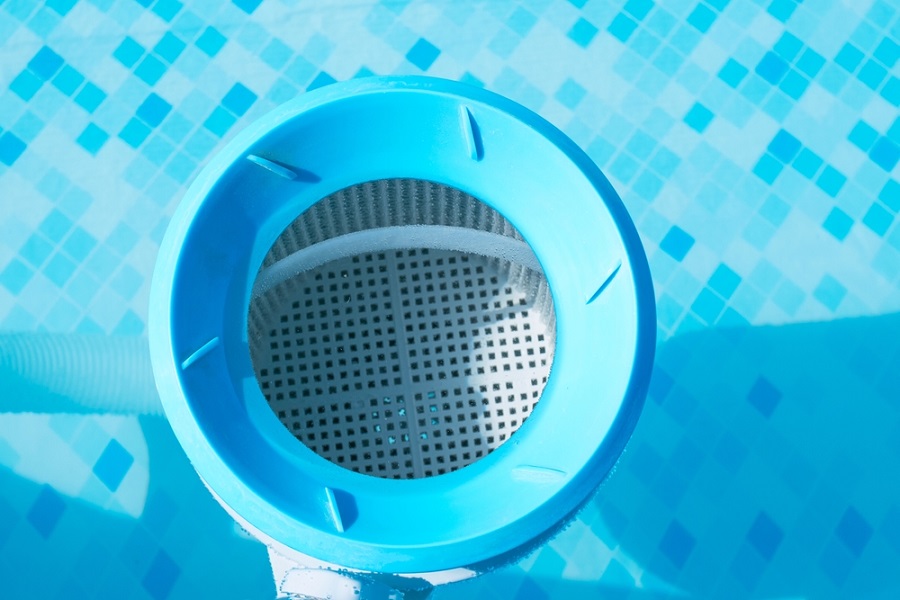
A skimmer collects floating debris such as algae and leaves. They cost between $50 and $300.
21. Pool Safety Net Cost
Safety nets protect swimmers from falls. They cost between $20 and $35 per net.
22. Pool Safety Gate Cost
Safety gates prevent children from falling into the pool or getting out. They cost between $75 and $200.
23. Hiring Pool Guys
Hiring a professional swimming pool cleaner is more expensive than hiring a pool guy. However, a professional pool cleaner has access to better tools and supplies.
Generally speaking, you are going to pay between $40 and $200 per cleaning visit with all labor and supplies included.
24. Pool Linens
Pool linens include towels, mats, and umbrellas. They cost between $5 and $25 per individual set.
25. Pool Chemicals
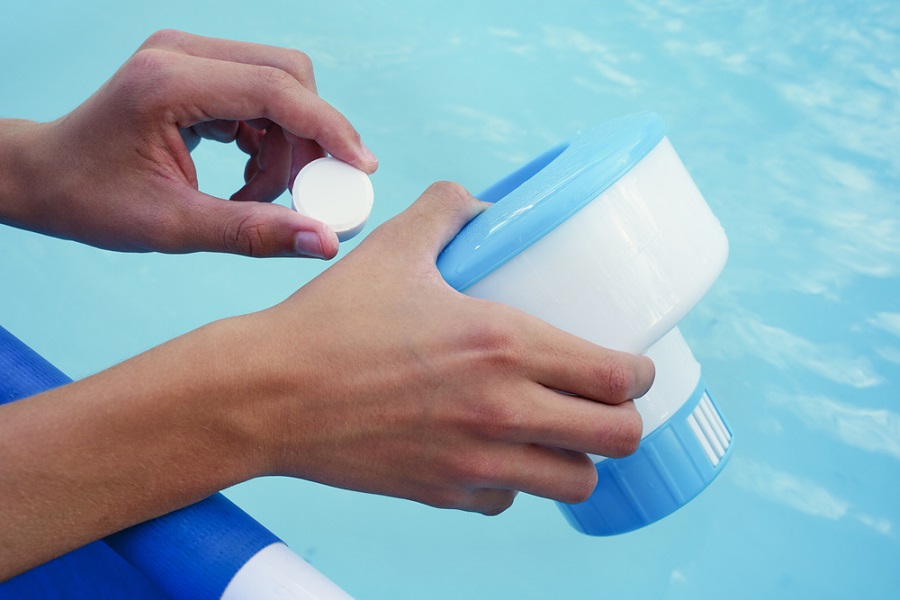
You will need a bevy of pool chemicals to deal with the various issues that arise over a year, including test strips, bacteriacides, algaecides, rust removers, stabilizers, chlorine, bromine, and mineral removers. Budget $50 per month for these.
26. Cost Per Month in Electricity
Electricity costs vary depending on where you live. In some states, electricity rates are higher than in others. In general, you should expect to add $50 to $150 per month to your utility bill to keep a typical inground pool filter system running.
Adding a gas or electrical heater to run in the winter can double or triple this off-season.
27. Pool Water Bill
Pool water bills range from $5 to $60 per month. This depends on the size of your home, whether you have a well, and how many people share the pool.
How to Maintain A Swimming Pool?
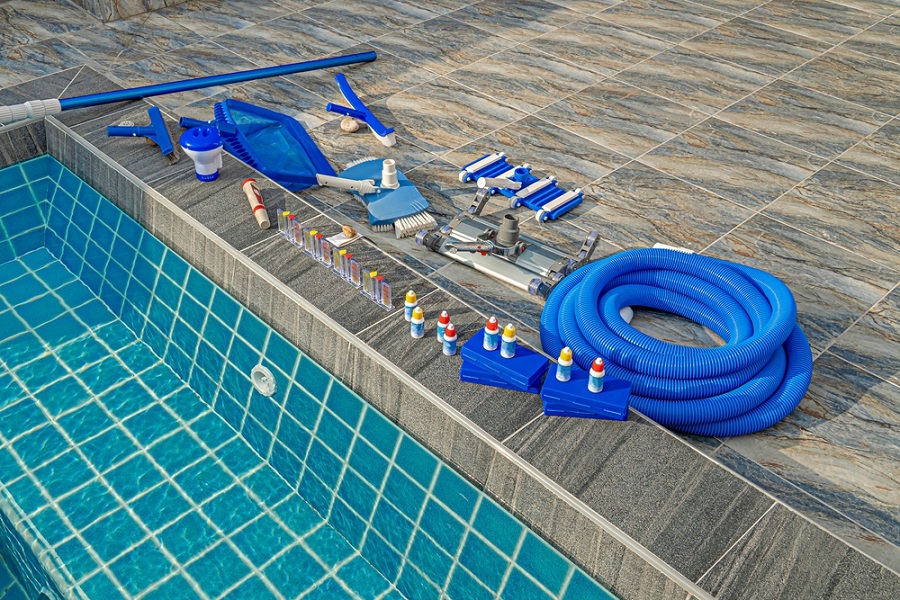
1. Check Your Pool Equipment
Check all equipment before you begin any maintenance work. Make sure everything works properly. If not, fix it right away.
2. Inspect Your Pool Walls
Inspect the exterior of your pool for cracks, leaks, and loose tiles. Fix these problems immediately.
3. Remove Debris From Your Pool
Remove debris such as leaves, toys, and sticks from around your pool. These items could damage your filter.
4. Vacuum Your Pool Floor
Vacuum your pool floor every week to remove dust and debris. Use a vacuum with a long hose so you don’t get stuck under the pool deck.
5. Change Your Filters
Change your filter at least once a year. You should also change your filters after adding chlorine or salt to the water.
6. Test Your Pool Water
Test your pool water regularly. Look for any signs of contamination.
7. Add Chlorine
Add chlorine to your pool water when necessary. Follow the instructions on your pool’s label.
8. Keep Your Pool Clean
Keep your pool clean. Sweep the bottom daily. Scrub the sides and walls twice weekly.
9. Deep Clean Your Pool
Deep cleaning your pool involves removing all the dirt and grime accumulated over time.
10. Clean Your Pool Filter
Clean your pool filter monthly to keep it working efficiently.
11. Clean Your Pool Liners
Clean your pool liners periodically to maintain their appearance.
12. Install New Ladders
Install new ladders if they become worn or damaged.
13. Repair Leaks
Repair leaks in your pool liner, pump, and other pool parts.
14. Replace Broken Parts
Replace broken parts like pumps, heaters, and filtration systems.
15. Drain Your Pool
Drain your pool completely whenever you aren’t using it. This will help prevent mold growth.
16. Refill Your Pool
Refill your pool with fresh water.
17. Clean Your Pool Skimmer
Clean your pool skimmer to remove algae and debris.
18. Add Salt & Chlorine
Add salt and chlorine to your pool water according to the directions on your pool’s label.
19. Change Your Pump
If your pool pump isn’t working correctly, replace it.
20. Clean Your Pool Toys
Clean your pool toys regularly to avoid bacteria buildup.
21. Clean Your Pool Shower Head
Clean your pool shower head regularly to ensure its performance.
22. Clean Your Pool Spa
Clean your pool spa regularly to eliminate algae build-up.
23. Clean Your Pool Light Bulbs
Clean your pool light bulbs regularly to extend their life span.
24. Clean Your Pool Heater
Cleaning your pool heater is an essential step in maintaining your pool.
25. Clean Your Pool Filtration System
Clean your pool filtration system regularly to keep it running smoothly.
26. Adjust Your Thermostat
Adjust your thermostat to the proper temperature.
FAQs
Q: How often do I need to clean my pool?
A: The frequency of your pool cleaning depends on how dirty your pool is. When your pool is clean, you can clean it less frequently. However, if your pool has a lot of debris, you may want to clean it more often.
Q: What are some things that I shouldn’t put in my pool?
A: Don’t put anything in your pool that might harm your family. For example, never put food items such as potato chips, candy, or gum into your pool. Also, don’t put chemicals or household cleaners in your pool. These substances could damage your pool equipment.
Q: Do I have to drain my pool every year?
A: Yes, you should drain your pool at least once per year. If you live in a cold climate where winter temperatures drop below freezing, you should drain your swimming pool during the colder months. Otherwise, you can drain your pool anytime.
Q: Can I use bleach to disinfect my pool?
A. No, bleach can be harmful to your pool. Bleach contains chloramine, which can cause eye irritation. You should only use regular pool cleaner products when disinfecting your pool.
Q: Why does my pool foam up after I add chlorine?
A: Adding too much chlorine to your pool can cause your pool to foam up. Make sure that you follow the recommended amount for your pool size.
Q: Will adding extra chlorine hurt my fish?
A: Adding extra chlorine won’t hurt your fish, but it can kill them. Always test the pH level before adding any additional chlorine.
Q: Should I buy a new filter?
A: Most filters last about five years. If you notice that your filter doesn’t work properly, consider replacing it. Filters also get clogged over time, so make sure you change your filter at least twice per year.
Q: How often should I check my pool’s pH level?
A: Check the pH level of your pool water monthly. If the pH value falls outside the range of 7.2 – 8.0, you should adjust the pH level using your pool’s chemical kit.
Q: How long will it take to fill my pool with water?
A: It takes approximately three hours to thoroughly fill your pool with water. Use this time to prepare your pool and set up your pump.
Q: How do I know if my pool needs to be drained?
A: Look for these signs:
1) Floating objects
2) Water that smells like rotten eggs
3) Large amounts of algae
4) Small amounts of floating leaves
5) Dark green coloration
6) Greenish-yellow coloration
7) yellowish-green coloration
8) Red coloration

